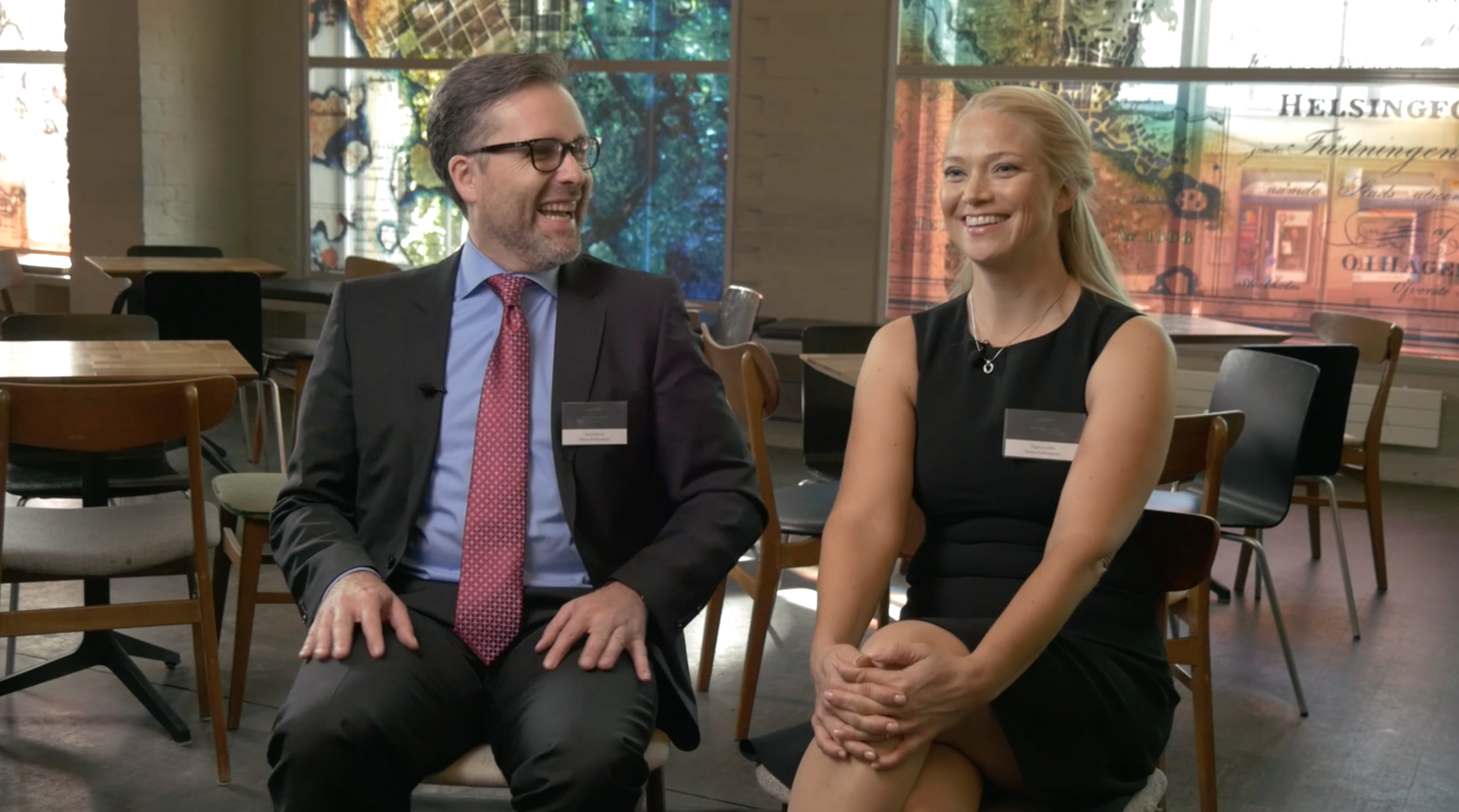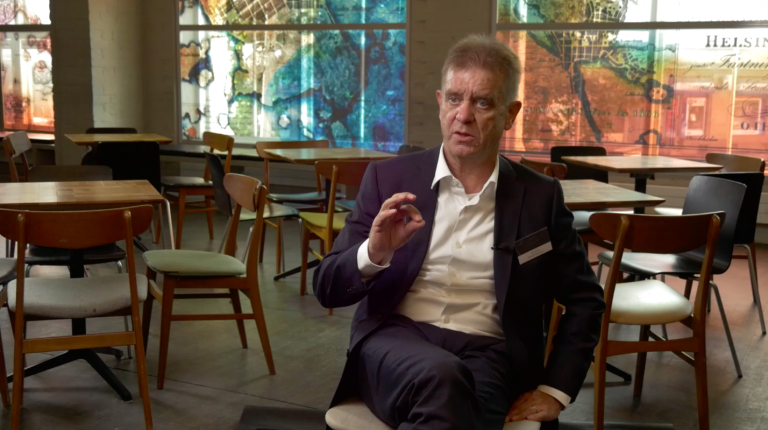High Performance Talks: Pippa Laukka & Ralph Braun

High Performance Talks is our weekly interview series focusing on improving performance through better health and wellbeing. In ten weeks, you will hear fascinating stories from Formula One drivers, top executives, entrepreneurs, university professors and our very own Hintsa experts.
In episode 7 of our series our medical professionals Dr. Pippa Laukka and Dr. Ralph Braun share interesting insights about the connection between health and performance as well as the scientific knowledge behind the Hintsa model. Pippa Laukka, Hintsa’s Chief Medical Office in Finland, is one of country’s leading sports doctors and has treated professional and amateur athletes for well over 20 years. In addition to his work as a cancer specialist and sports doctor, Ralph Braun is part of the Hintsa Science Board.
What does it mean to be healthy?
Ralph: “I think every person who has blood pumping well through their body is somewhat healthy, but even though the person might be healthy, they might not be performing at their best. Usually, when people talk about health, they talk about medical health or general health and don’t talk about mental wellbeing or sleep and recovery. These are some details that many people miss.
There’s a big interaction between the general health and performance. General health impacts your wellbeing and your performance, and in turn, the wellbeing and lifestyle choices impact your general health. That link is something that not many people are seeing.”
Pippa: “In general you need to look your health from the inside out. In the Hintsa model we have the core, i.e. the identity, purpose, and control over your life, and on the other hand the 6 elements that are affecting daily life and your habits. Your health is a combination of mental, physical, and cognitive assets that you have at your disposal.”
What can people do to stay healthy?
Ralph: “There are many diseases you could prevent just with your lifestyle choices. Let me give you an example: one-third of all cancers could be prevented by actively changing your habits. If you quit smoking, don’t drink alcohol, move more, reduce your weight and eat healthy you reduce your cancer risk by one-third, and that is enormous! So you have an important role in your own health.”
Pippa: “Yes, we all know the basic stuff: eat healthy, exercise regularly and sleep enough, but still half of the adult population is obese. So diseases are not only depended on the decisions you make in daily life. It’s also about mental energy: what you have inside, your inner motivation, self-confidence, and most of all your ability to use your mental power to make those healthy daily choices.”
So there is a connection between mental and physical health?
Ralph: “Yes definitely, as Pippa mentioned there is a big interaction between mental energy and general health. We all know, you cannot eat well if you don’t have the energy to do it. Or if you don’t have the commitment to do it. You need to go there and do your shopping and make those right decisions. You need to have the mental energy to be active, to move, to lose weight and to sleep and recover. So you need to have the energy, you need to be in control. And it works the other way around too; when you eat well, when you move and when you have a good diet, you feel much better and more energetic.
It is an upward spiral. It’s very easy to get into the downward spiral, to move less, to eat unhealthy, to feel you have less and less energy. That’s automatic. You don’t have to do anything for it to happen. But the upward spiral, that is very difficult to get into. But once you’re in, it really can pull you up! It’s nice.”
Pippa: “Also there’s a link between mind and body. Our thoughts and emotions can have a great effect on our physical wellbeing. An excessive storage of negative thoughts can cause stress and depression. That in turn, has a great influence on your physical wellbeing, hormone function and also immunity. Many diseases are immunological problems that are in fact caused by mental problems.
It’s a two-way street. The life habits and choices in diet and exercising, then have a great effect on our mental health and through that on our overall wellbeing, our holistic wellbeing.”
What is your favourite thing about the Hintsa model?
Pippa: “It’s basically a medical tool. It’s based on scientific knowledge. That’s the backbone of everything we do, and we don’t want to do it in any other way. We want to have scientific knowledge and we use that knowledge in our philosophy.”
Ralph: “The problems with wellbeing have been around for a long time. The problems have been identified and there are different approaches for tackling them. Some unique approaches are just taking care of the movement, or nutrition, or just one element, but what makes Hintsa unique is not only the holistic approach of all six areas but also the core. The core is: Who am I? What do I really want? And that core is associated with all the other elements. I have never seen that anywhere else. The core makes a big, big difference.”
How can one improve their general wellbeing, if they don’t have much energy?
Ralph: “Usually people that are not doing well, they don’t have the energy to do better. What I see is that people have many self-help books – there are so many books and podcast and such out there – so clearly people are looking for help, but they don’t know what to do.
I would advise starting by looking at the six areas of the Hintsa model; How is your general health? How is your sleep and how could you improve your sleep? How do you eat and how could you improve what you eat? Are you moving enough? How is your biomechanics? You can start by looking at these areas and see where you need improvement. Because very often you know it.
Sometimes I call it like a catalysator. You can have somebody, like the Hintsa coaches that help you, but the idea has to come from you. It has to come from inside out. Someone else cannot tell you do 10.000 steps. It should be you wanting to try and then seeing how you feel better. It’s all about your own motivation. It makes a big difference.”
Pippa: “Yes, and basically the wellbeing that comes after that is sort of a by-product. I think it’s challenging for many people because they start from the wrong direction. They start from changing their life, but they don’t know why they are doing it, and what is the purpose and meaning behind it. They first need to consider what is the core, what they want in life, what are they aiming for.”
If you could give the readers just one simple piece of advice, what would it be?
Pippa: “Know who you are!”
Ralph: “Apart from the more general eating well, sleeping well and moving and getting the exercise? Ask yourself these questions; Who are you and what do you want, what do you really want? Ask these from yourself and answer them honestly, because it’s very easy to cheat on this one, but it will bite you back later. And once you know, that’s the start and that’s what it’s all about. Be authentic, be you! Be in control, be in control of your life!”

Read previous
High Performance Talks: Dr. Aki Hintsa

Contact
